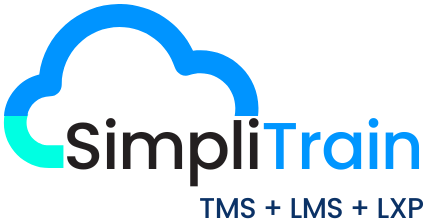
Emotional intelligence (EI) has become one of the most crucial skills for success in today’s workplace. While technical skills and industry knowledge are still essential, emotional intelligence – the ability to recognize, understand, and manage emotions in ourselves and others – often determines the difference between a good employee and a great one. According to TalentSmart, 90% of top performers have high emotional intelligence, underscoring its importance in any professional setting.
So, how can we build and enhance emotional intelligence effectively? This article provides key strategies, backed by data and insights from experts, to help you cultivate emotional intelligence and unlock greater personal and professional success.
Why Emotional Intelligence Matters More Than Ever
Emotional intelligence impacts how we interact with colleagues, handle stress, and make decisions. In fact, Harvard Business Review found that emotionally intelligent leaders see 20% higher team performance, and companies with high-EI employees report better team dynamics, reduced conflict, and improved adaptability to change.
According to Dr. Sarah Bennett, a leadership psychologist:
“Emotional intelligence provides a toolkit for resilience and effective communication in challenging situations, making it an invaluable skill in modern workplaces.”
Strategy #1: Develop Self-Awareness through Reflection
Self-awareness, the skill to understand your emotions and their influence on those around you, serves as the foundation of emotional intelligence. Building self-awareness involves honest reflection and a willingness to acknowledge strengths and areas for improvement.
Tips to Enhance Self-Awareness:
- Daily Reflection:
Spend a few minutes each day reviewing your emotional responses in different situations. - Seek Feedback:
Ask colleagues or mentors for constructive feedback to gain insights into your behavior. - Journaling:
Document your thoughts, emotions, and triggers to better understand patterns in your reactions.
Employees who develop self-awareness report a 32% increase in job satisfaction, according to a study by Cornell University.
Strategy #2: Practice Self-Management Techniques
Self-management is about controlling your emotional responses, particularly in high-stress situations. By practicing self-control, you can make more rational decisions and avoid impulsive reactions that might negatively impact your work relationships.
Techniques for Self-Management:
- Mindfulness:
Engage in breathing exercises or meditation to center yourself, especially before high-stakes meetings or presentations. - Pause Before Reacting:
When you feel a strong emotion, take a few seconds to pause, which can prevent impulsive reactions. - Set Goals for Improvement:
Identify specific areas where you’d like to improve (e.g., staying calm under pressure) and track your progress.
Expert Insight:
“Self-management is the bridge between feeling an emotion and choosing how to respond to it thoughtfully.” – Dr. Michael Grant, Emotional Intelligence Coach.
Strategy #3: Build Empathy with Active Listening
Empathy, the ability to understand others’ emotions and perspectives, is essential for building trust and collaboration. Research by Gallup shows that empathetic teams experience a 50% reduction in turnover and foster stronger, more supportive relationships.
Tips for Building Empathy:
- Engage in Active Listening:
Focus on what the other person is saying without planning your response. This demonstrates respect and enables you to truly grasp their point of view. - Ask Open-Ended Questions:
Encourage others to share more about their thoughts and emotions, deepening your connection. - Observe Non-Verbal Cues:
Pay attention to body language and tone to pick up on feelings beyond words.
Strategy #4: Improve Social Skills through Effective Communication
Building relationships in the workplace requires strong social skills, including the ability to communicate clearly, collaborate, and resolve conflicts effectively. These skills are crucial for effective team leadership and cultivating a positive workplace atmosphere.
Ways to Improve Social Skills:
- Practice Clear Communication:
When sharing ideas or feedback, be concise, considerate, and open to feedback. - Be Open to Collaboration:
Encourage teamwork by inviting colleagues to contribute ideas and solutions. - Develop Conflict Resolution Skills:
Approach conflicts calmly, seek to understand all perspectives, and work toward a solution that benefits everyone involved.
Deloitte found that organizations that emphasize effective communication see 30% higher employee engagement and productivity.
Strategy #5: Foster a Growth Mindset for Continuous Improvement
A growth mindset—the belief that abilities can be enhanced through dedication and effort—is essential for developing emotional intelligence. People with a growth mindset are more likely to embrace challenges, persist through setbacks, and continuously improve their skills, including EI.
How to Foster a Growth Mindset:
- View Challenges as Opportunities:
Instead of avoiding difficult situations, see them as chances to grow emotionally. - Seek Learning Opportunities:
Attend workshops or read books on emotional intelligence and self-improvement. - Celebrate Progress:
Acknowledge even small improvements in managing emotions or handling interactions.
Final Thoughts
Building emotional intelligence is a strategic investment in your organization’s future. It enhances teamwork, boosts employee morale, and helps create a positive work environment that attracts and retains top talent.
As Gartner notes:
“Organizations that prioritize emotional intelligence as part of their core competencies will outperform those that don’t in agility, resilience, and employee engagement.”
Measuring and Improving Emotional Intelligence
To continuously improve EI, companies can implement these steps:
- Use EI Assessments:
Tools like the Emotional Intelligence Appraisal help employees assess their EI and identify areas for growth. - Offer EI Training Programs:
Provide workshops and courses focused on emotional regulation, empathy, and leadership. - Integrate EI Goals in Performance Reviews:
Encourage managers to incorporate EI metrics in evaluations to support professional growth.
Incorporate these strategies into your workplace culture to unlock the full potential of emotional intelligence. Start building a more empathetic, effective, and adaptable workforce today.

